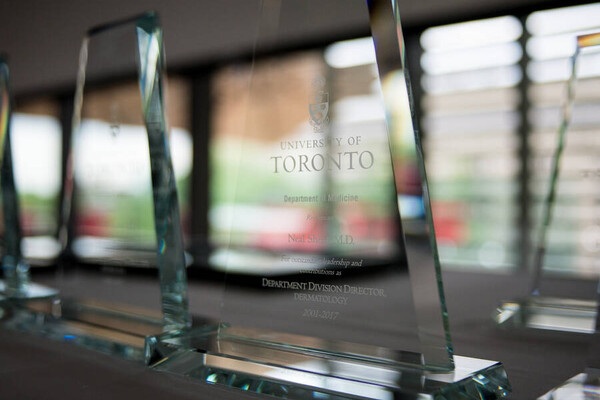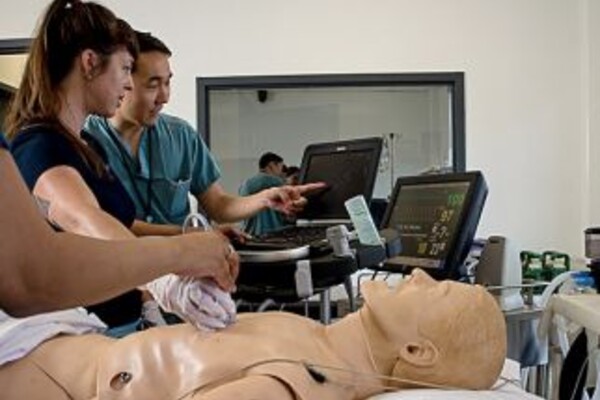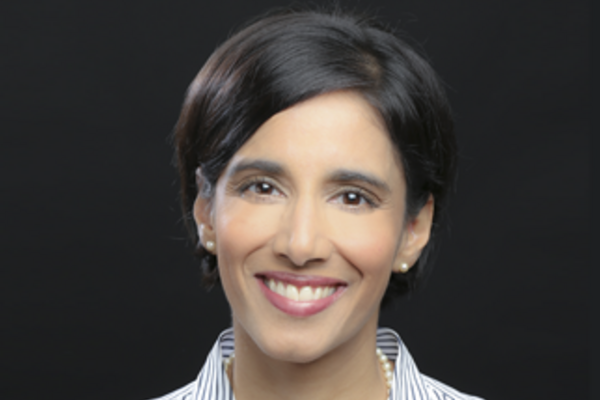U of T Researchers Receive $1.5 million in CFI Funding to Launch Unified COVID-19 Biobank
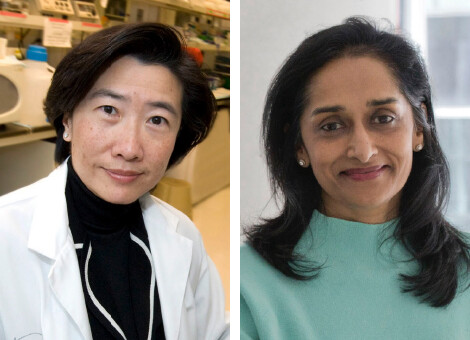
Temerty Faculty of Medicine Communications
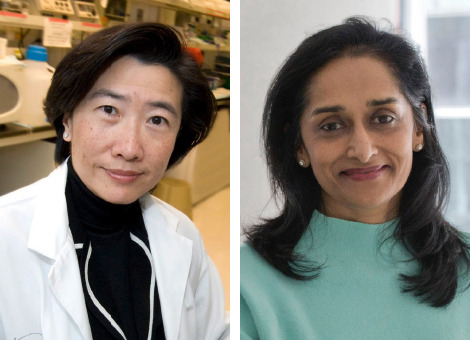 U of T researchers have been awarded $1.5 million by the Canada Foundation for Innovation’s (CFI) Exceptional Opportunities Fund to establish the UT COVID-19 Biobank, integrating existing COVID-19 biobanks across Toronto.
U of T researchers have been awarded $1.5 million by the Canada Foundation for Innovation’s (CFI) Exceptional Opportunities Fund to establish the UT COVID-19 Biobank, integrating existing COVID-19 biobanks across Toronto.
The UT COVID-19 Biobank will provide safe, secure and standardized collection of biologic samples, such as blood and respiratory secretions, that are critical to answering a range of research questions about COVID-19 infection across the age span from children to the elderly.
It will support the collection of more than half a million samples of biologic data collected from more than 57,000 Canadians, including patients with COVID-19, family members, health-care professionals and controls. These samples will be collected in 72 U of T-led studies.
By bringing together existing COVID-19 studies from across the Toronto Academic Health Sciences Network (TAHSN) hospitals, the new UT COVID-19 Biobank will leverage already-established infrastructure, scientific collaborations and sharing of data to increase the rigour and impact of research results. The UT COVID-19 Biobank is expected to launch immediately.
The funding was announced by The Honourable Navdeep Bains, Minister of Innovation, Science and Industry, on November 6, and was part of close to $28 million in funding through CFI’s Exceptional Opportunities Fund, created to support urgent needs for equipment for ongoing research related to COVID-19.
“We are grateful to CFI for this important funding. With the launch of the UT COVID-19 Biobank, we hope to advance our understanding of COVID-19 across the age span and severity of COVID-19 disease using common collection procedures,” says Dr. Rae Yeung, the project’s principal investigator and a professor in the Departments of Paediatrics, Immunology, and Medical Science at the Temerty Faculty of Medicine at U of T.
Yeung is also a Senior Scientist and a Staff Physician in Rheumatology at SickKids.
“The unique collaboration provided by the biobank will help ensure that important questions about COVID-19 immunity and long-term complications are answered,” says Dr. Rulan Parekh, the co-principal investigator and a professor in the Departments of Paediatrics and Medicine in the Temerty Faculty of Medicine.
Parekh is also Associate Chief of Clinical Research, Senior Scientist and a Staff Physician in Nephrology at SickKids.
One of the greatest obstacles to inter-institutional and international collaboration is a lack of uniform data collection, and an integrated and centralized biobank is a way to ensure across-the-board consistency. This is particularly important during the current pandemic.
“Many biomarkers associated with COVID-19, such as inflammatory markers, are very unstable in the blood, meaning that if you don’t process them very quickly, they degrade and the measurements do not reflect what’s really going on,” says Yeung.
There are other factors that must be consistent among samples to ensure researchers are “comparing apples to apples,” such as the way samples are processed, how they are stored and transported, and at what temperature.
Some samples must be stored at -80 C to remain stable, requiring highly specialized storage and transportation equipment.
To address these uniformity challenges and increase efficiency, the biobank will create standard operating procedures for all users, including centralized consent and research-ethics frameworks.
The biobank will allow multiple research teams to maximize the use of a single specimen in different studies. This has the added benefit of enhancing infection prevention and control during the pandemic by limiting the number of in-person appointments for study participants, notes Parekh.
Another innovative aspect of the project is that, in order to reach under-serviced and underrepresented populations (many of whom might not otherwise be able to go to downtown hospitals to participate), the project will send a mobile sample-collection unit right into communities across the Greater Toronto Area. The staffed van will meet study participants to provide blood tests and obtain samples that will be added to the biobank.
The project’s other co-principal investigators are Drs. Angela Cheung and Shahid Husain from Toronto General Hospital Research Institute, University Health Network (UHN), and Claudia dos Santos of the Keenan Research Centre at St. Michael’s Hospital, Unity Health Toronto.
“We are incredibly excited about this project,” says Yeung, adding that it came together extraordinarily quickly and enthusiastically. “Everyone wants to help with the COVID situation and has been so generous with their time and expertise.”
“University of Toronto researchers are playing a critical role in addressing the ongoing public health crisis and are working tirelessly to assist the Canadian and global response to the pandemic,” said Christine Allen, U of T’s associate vice-president and vice-provost, strategic initiatives, and a professor in the Leslie Dan Faculty of Pharmacy.
“This funding from the Canada Foundation for Innovation supports two important research projects that will see experts from U of T and partner hospitals combine their expertise to increase our understanding of COVID-19 and improve the lives of Canadians affected by this deadly disease.”

